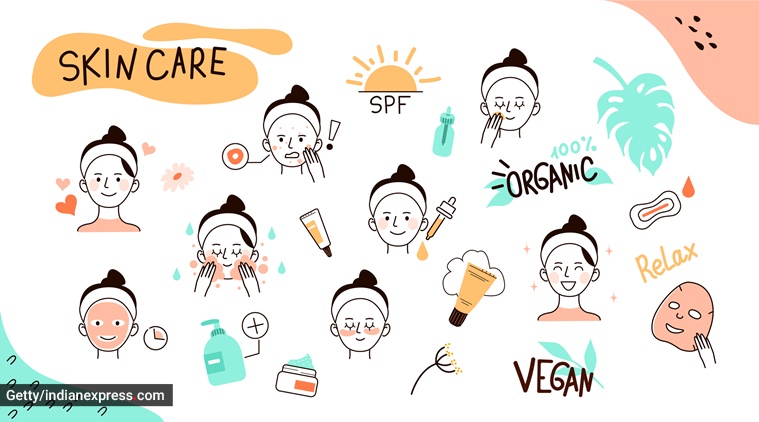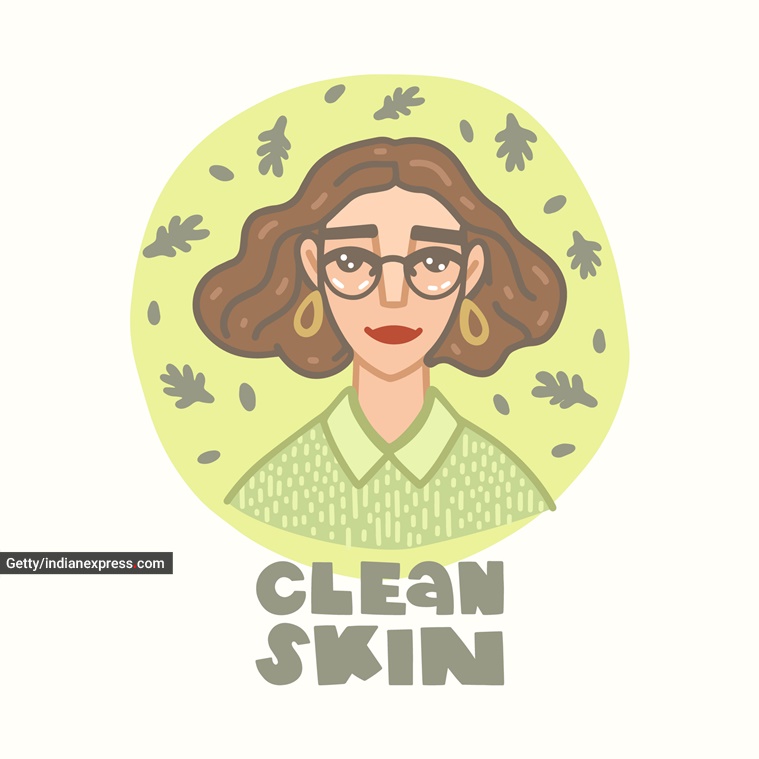 With the world of beauty being competitive, our single-use behaviour has been fed manifolds. (Photo: Getty)
With the world of beauty being competitive, our single-use behaviour has been fed manifolds. (Photo: Getty)
Your basic CTM routine barely takes half an hour, maybe add an extra five minutes of applying the serum. However, the cost that the environment is paying for it overwhelming. The world of beauty, being highly competitive, feeds into our single-use behaviour as we fancy the idea of firmer skin, the new shade of peach-toned blush, pimple patches and sheet masks.
With the entire world coming to a standstill owing to the pandemic, terms like cruelty-free, sustainable and organic are finally getting the attention they deserve. After all, we currently produce 300 million tonnes of plastic. According to the UN, “that’s nearly equivalent to the weight of the entire human population”.
The silver lining, however, is that “consumers who are making the shift to sustainable brands and makeup are doing so because they sincerely believe in the cause,” points out Amit Patil, founder, Ilana Organics.
For Just Herbs, a bespoke Ayurveda beauty brand, and Ilana Organics, the plummeting sales during coronavirus lockdown recovered substantially in about two months, reflecting that people are ready for a clean beauty regime. While clean beauty is an idea that may have different meanings for different people, it roughly refers to products that claim to be natural, organic and vegan.
Beauty and wellness
 The age-old idea that beauty is all about topical application and focus on external being is slowly changing. (Photo: Getty)
The age-old idea that beauty is all about topical application and focus on external being is slowly changing. (Photo: Getty)
There has been a growing demand to incorporate wellness into beauty, prompting brands such as FAE Beauty to mention their ingredients on their site. A 20-minute face massage can help relieve stress and help one unwind after a long day, but it is not just the upward strokes that are important, but also the products one is applying.
Abhilasha Lakhani, a marketing and communication consultant, says how switching to organic skincare has made a world of difference to her. “After I remove my makeup with Ayurvedic micellar water, I feel good knowing that it’s not chemicals that are going into my pores. My skin feels light, fresh and hydrated,” she remarks.
Neelakshi Singh, stylist and body-positive activist based out of Mumbai, has made a gradual shift towards clean makeup over the last three years. “My goal is to have skin that looks great even without makeup.” It all started with a PR package from a clean makeup brand that changed her perception of beauty. “I am being mindful about what I’m putting into my body as well as on it.”
The lines are blurring between makeup and skincare as the idea of ‘green’ and ‘clean’ gains momentum, such as the Ayurvedic lipsticks launched by Just Herbs during the pandemic, along with a natural makeup collection that is enriched with ghee and sesame oil.
Swati Daga, a makeup artist gives out key points to keep in mind while buying clean makeup products the first time.
 “Clean means that a beauty product should be using a nontoxic element as a baseline and plant-based ingredients for active results,” says the makeup artist.
“Clean means that a beauty product should be using a nontoxic element as a baseline and plant-based ingredients for active results,” says the makeup artist.
Homegrown recyclable beauty kits
As we slowly try and resume our usual life after lockdown, the need to make mindful choices is becoming evident with each passing day. Singh, who is exploring homegrown alternatives, says, “Makeup is my mask, an instant mood-lifter and if it’s clean and mindful, there’s nothing like it.”
For aware consumers, the packaging is of equal concern. Just Herbs, which claims to be exploring better recyclable programmes, has introduced a reusable and eco-friendly cloth packaging for their samples. Arush Chopra, CEO of Just Herbs, says, “We’ve stopped using ornate boxes to send products to influencers and beauty bloggers during launches in order to reduce waste.”
For Ilana Organics, 85 per cent of their packaging is glass and completely recyclable. Patil says, “The outer cartons are lamination-free, which makes them 100 per cent recyclable.” While there’s more work to be done to reduce packaging waste, they have started offering store credits in return for empty bottles and another packaging.
Meanwhile, Kronakare, an Indo-French beauty brand led by Cyril Feuillebois, believes that sustainability runs deeper than the products they manufacture. “Our offices too are sustainable, we have huge windows for ventilation so as to avoid the continuous use of air conditioners,” says Feuillebois. In terms of the packaging, he says, “You can’t really avoid the use of plastic in this industry, but all our products are made with Polyethylene terephthalate (PET), which can be recycled.”
It’s not just homegrown companies that are riding the sustainability wave, but also cult beauty brands like Dior and Revlon, which have opted for refillable lipstick bullets.
What lies ahead
The skincare industry is huge but if we stand firm by our beliefs and make decisions that not only affect us but also our surroundings, the trend of clean beauty is unlikely to fade away with time. Patil agrees that “consumers are more interested in ingredients rather than the fragrance of the product”.
Karisma Kewalrawani, CEO of FAE Beauty, says, “There is also a realisation that choosing products made with superior quality and relatively ‘cleaner’ ingredients doesn’t mean that one has to compromise on efficacy and trendiness.”
In fact, Singh, a clean beauty enthusiast, remarks, “The organic lipsticks don’t last for hours like the chemical-based makeup but at least I don’t have chemicals seeping into my skin.”
With health and well-being taking centre stage in a post-COVID world, consumers will seek to find clean alternatives in all that they consume. Chopra is much optimistic, “Beauty and makeup have lagged behind in catching up with this evolving consumer preference for conscious consumption, but we have finally come at a point where this trend is taking off.”